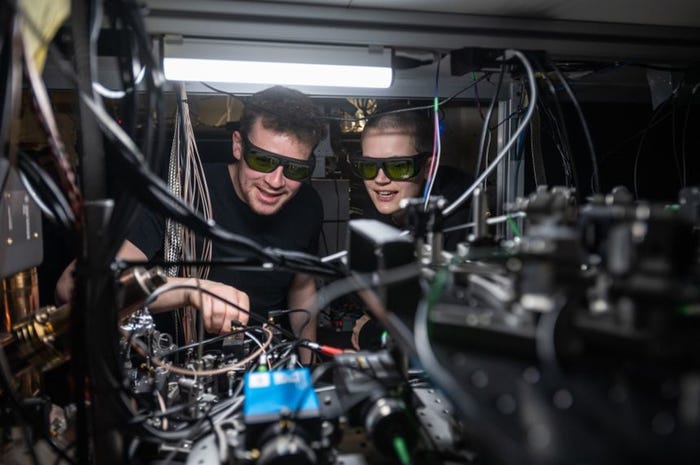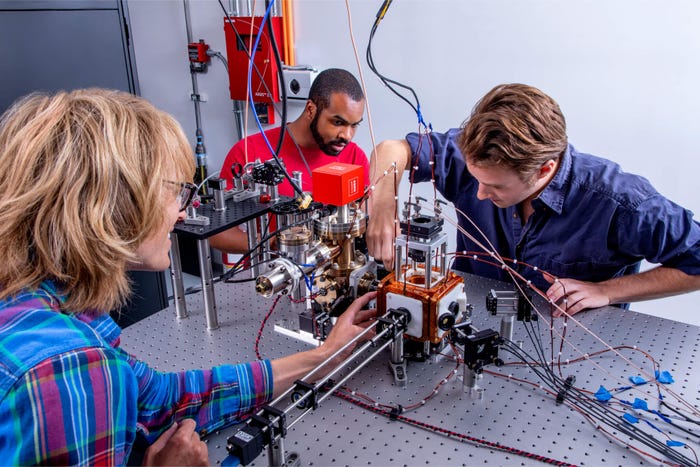
Connects decision-makers and solutions creators to what's next in quantum computing
$2.5B Quantum Funding Proposed in Senate$2.5B Quantum Funding Proposed in Senate
Department of Energy legislation seeks to strengthen quantum technology and energy sectors

A bipartisan group of senators has introduced the Department of Energy (DOE) Quantum Leadership Act of 2025, which would provide more than $2.5 billion in funding to bolster quantum information science and technology.
The bill aims to amend the National Quantum Initiative Act to establish a comprehensive research, development and demonstration program by allocating $175,000,000 annually from 2026 to 2030.
The act focuses on six key areas:
Research and Development: The act proposes that the Secretary of Energy lead a program dedicated to quantum information science, engineering and technology. This includes basic and applied research with industry, national laboratories, higher education institutions and other research institutions. The research would span quantum information theory, physics, computational science, communications, sensing, materials science and security technologies.
Quantum Computing Infrastructure: A 10-year strategic plan aims to guide federal programs in designing energy-efficient, high-performance computing systems that integrate quantum, AI and machine learning accelerators. The act would also support early-stage quantum supercomputing testbeds and prototypes.
Industry Engagement and Commercialization: The act seeks to promote the commercialization of quantum technology, focusing on educating the energy industry about available quantum technologies and vice versa. It aims to advance domestic supply chains and manufacturing capabilities and facilitate the commercialization of quantum technologies from National Laboratories.
Workforce Development: A university-led traineeship program would focus on increasing participation and research opportunities for underrepresented students in quantum information science.
Quantum Foundries and Instrumentation: Aims to establish an instrumentation and infrastructure program to maintain U.S. leadership in quantum information science, develop domestic supply chains and provide resources for the scientific community. This includes supporting the development of quantum foundries focused on meeting the scientific community's device, hardware, software and materials needs and the quantum supply chain.
Quantum Network Infrastructure: The legislation supports the development of quantum network infrastructure, leveraging diverse modalities and commercially available quantum hardware and software.
The act proposes that the secretary of energy coordinate with other federal agencies, including the National Science Foundation and the National Institute of Standards and Technology, to ensure programs complement existing efforts.
However, it restricts funding for institutions with ties to Confucius Institutes such those that run educational programs promoting Chinese language and culture and foreign countries or entities of concern.
About the Author
You May Also Like






